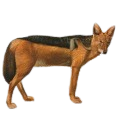- Abalangira History
- Babiito-Kibulala History
- Babiito-Kiziba History
- Babiito-kooki History
- Butiko History
- Ffumbe History
- Kasanke History
- Kasimba History
- Kayozi History
- Kibe History
- Kibuba History
- Kinyomo History
- Kiwere History
- Kkobe History
- Lugave History
- Lukato History
- Mazzi ga Kisasi History
- Mbogo History
- Mbuzi History
- Mbwa History
- Mmamba History
- Mmamba kakoboza History
- Mpeewo History
- Mpindi History
- Mpologoma History
- Musu History
- Mutima Musagi History
- Mutima Omuyanja History
- Nakinsige History
- Namuŋŋoona History
- Ndiga History
- Ndiisa History
- Ngabi Nnyunga History
- Ngabi Nsamba History
- Ngeye History
- Ngo History
- Njaza History
- Njovu History
- Nkebuka History
- Nkejje History
- Nkerebwe History
- Nkima History
- Nkula History
- Nnyonyi Nnyange History
- Nseenene History
- Nsuma History
- Nsunu History
- Nswaswa History
- Ntalaganya History
- Nte History
- Nvubu History
- Nvuma History
- Ŋŋaali History
- Ŋŋonge History

Kibe Clan History
The Great Grand Father of those who belong to the Kibe Clan, Head of Clan (Ow'Akasolya), is called MUYIGE. The clan seat (Obutaka) for Muyige is found at Wantaayi in Kyaggwe. The roots of those of the Kibe Clan go back so many years in the history of Buganda. They existed even in the reign of King Kintu.
The "Kibe" people first settled in Busujju, from where they went to Kyaggwe. This is how they went to Kyaggwe: Once upon a time, Prince Kayemba was ordered by his big brother, King Jjuuko to go and conquer the territory of Buvuma. King Jjuuko ruled Buganda between 1654-1664. When Prince Kayemba went to fight for Buvuma, he went with many people who belonged to the Kibe Clan.
After he had conquered Buvuma, some of his men, who were of the Kibe Clan settled on the islands of Buvuma. It is from here, some moved to Busoga. When Prince Kayemba left Buvuma to return to Buganda, many of the Kibe Clan came back with him. They arrived at the harbour-Kigaya. It is from there they acquired land on the hills surrounding harbour-Kigaya and on the village of Makindu. They also got land in Buyikwe and its surrounding, and in other places such as Buzaana and Bugolo.
It is during the reign of King Ssemakookiro(1779-1794), when those of the Kibe clan bacame very prominent. After they had been given the duties of 'Chief Brewers' to the King. (Obasenero bw'omwenge gwa Kabaka). They got this title from the "Nvuma" Clan.
The following narration explains how those of the Kibe clan were given the duties of "Chief Brewers":
Once upon a time, a man called Kyasanku of the Kibe clan went and lived with Prince Ssemakookiro when he was staying at Nnamwezi in Kyaggwe. It is there the Prince was preparing his force which was to attack his brother, King Jjunju.
When Ssemakookiro left to fight his brother, Kyasanku was a member of his army. One day, when they were on the way to fight King Jjunju, Prince Ssemakookiro asked Kyasanku to give him some brew. Kyasanku had by now thought of an idea of drinking the brew using a stick which was hollow (Oluseke). When he was taking the brew that the Prince had asked him, there was this 'stick'. So when the Prince saw the stick, he asked;
"Omwege gwange gw'osimbyemu OLUTI gubade ki?"- In simple terms meaning:- "What has happened to my brew in which you have put a stick (OLUTI)?"
Kyasanku replied:
"OLUTI olwo lujja kukunywesa bulungi omwenge nga teguyinza na kukuyiikira". Meaning:- "That stick(OLUTI) will enable you drink your brew properly and it can not spill on you".
When the Prince tried to use the stick, he realised that the drink was flowing well and it was more enjoyable using the stick. The next time he wanted to have some drink, it was the Prince who was the first to tell Kyasanku to bring him the brew together with the stick (OLUTI) he had used the previous time. It is from there the Prince started calling Kyasanku that:
"SSERUTI, ndeetera ku mwenge gwange nnyweeko"- Meaning that "SSERUTI, bring my brew so that l can drink"
That is when Kyasanku got the nickname SSERUTI and started to be called so. The name 'SSERUTI' comes from the word 'OLUTI' which means stick.
When Ssemakookiro bacame King of Buganda, after defeating his big brother Jjunju, he removed the duties of Chief Brewers from the 'Nvuma' Clan and gave those duties to his man Sseruti. The one who had discovered the way to drink brew using a stick (Oluseke-Oluti).
And when the King asked Sseruti from where he would perfom his duties, he answered that he would like to be stationed in Buyikwe-Kyaggwe. The King also asked him where he was born and he answered "Wambogwe". It is said that when Kyasanku settled on his new village-Buyikwe, he used to beat his drum saying these words:
"Kyasanku, bakuzaala wa? Ku kizinga Wambogwe" - Literally meaning- "Where are you born Kyasanku? On the island of Wambogwe". This later became one of the Mottoes(Emibala) of the Kibe Clan.
From the times of King Ssemakookiro, the duty of Chief Brewer (Sseruti) is perfomed by the Kibe Clan up to this day. But the Chief Brewer(Sseruti) these days does his work from Kawongo-Bukoba in Kyaggwe, on the King's land.
When King Ssemakookiro died, Kyasanku (Sseruti) was killed. That was the tradition and belief those days. Kyasanku's son, Kagi, became his heir. And he was the "Sseruti" during King Kamaanya's reign(1794-1824). When King Kamaanya died, Kagi was also killed. Kagi's successor was his brother Mujere. This tradition of killing the Chief Brewer (Sseruti), whenever a King died, stopped after the death of King Ssuuna ll (1824-1856). When Kibawo, the then Chief Brewer, was never killed and continued doing his job up to the times of King Mukaabya Walugembe Mutesa (1856-1884).
